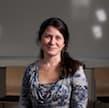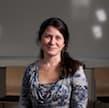This course is part of multiple programs. Learn more.
This comprehensive course examines the concept of planetary boundaries and their crucial role in maintaining Earth's stability. Students explore how human activities in the Anthropocene era impact global environmental systems, from oceans and forests to biodiversity and atmosphere. The course investigates the delicate balance between human development and planetary resilience, focusing on sustainable patterns of production and consumption. Through expert instruction, participants learn about tipping points, social-ecological systems, and global governance approaches for sustainability. The curriculum combines scientific understanding with practical implications for creating a just and sustainable future within Earth's natural limits.
4.9
(33 ratings)
10,569 already enrolled
Instructors:
English
English, Spanish, Italian
What you'll learn
Understand the concept of the Anthropocene and its implications for Earth's systems
Analyze the three major planetary boundaries and their tipping points
Examine social-ecological systems and resilience thinking in sustainability
Evaluate global governance approaches for planetary sustainability
Understand the relationship between planetary boundaries and social equity
Analyze frameworks for achieving sustainability within Earth's limits
Skills you'll gain
This course includes:
PreRecorded video
Graded assignments, Exams
Access on Mobile, Tablet, Desktop
Limited Access access
Shareable certificate
Closed caption
Get a Completion Certificate
Share your certificate with prospective employers and your professional network on LinkedIn.
Created by
Provided by

Top companies offer this course to their employees
Top companies provide this course to enhance their employees' skills, ensuring they excel in handling complex projects and drive organizational success.





There are 8 modules in this course
The course provides a comprehensive exploration of planetary boundaries and their significance in the Anthropocene era. Through eight modules, students examine the relationship between human activities and Earth's natural systems, focusing on environmental change, resilience thinking, and sustainable development. The curriculum covers critical concepts including tipping points, social-ecological systems, and global governance frameworks for sustainability. Special emphasis is placed on understanding how societies can develop within planetary boundaries while ensuring social equity and environmental protection.
Introduction and the Big Picture
Module 1
Welcome to the Anthropocene
Module 2
Social-Ecological Systems and Resilience Thinking
Module 3
Planetary Boundaries Framework – Part 1
Module 4
Planetary Boundaries Framework – Part 2
Module 5
Planetary Boundaries and Global Equity
Module 6
Moving towards Global Sustainability within Biophysical and Social Boundaries
Module 7
Conclusion
Module 8
Fee Structure
Individual course purchase is not available - to enroll in this course with a certificate, you need to purchase the complete Professional Certificate Course. For enrollment and detailed fee structure, visit the following: Foundations of Sustainable Development, Master's Pathway in Foundations of Sustainable Development
Payment options
Financial Aid
Instructors

7 Courses
A Global Leader in Climate Science and Sustainability
Johan Rockström, born December 31, 1965, is a pioneering Swedish scientist who serves as Director of the Potsdam Institute for Climate Impact Research (PIK) and holds professorships at both the University of Potsdam and Stockholm University. He is internationally renowned for developing the Planetary Boundaries framework in 2009, which defines the safe operating space for humanity on Earth. His distinguished career includes founding the Stockholm Resilience Centre and serving as Executive Director of the Stockholm Environment Institute. Recently awarded the 2024 Tyler Prize for Environmental Achievement, Rockström's research focuses on global sustainability, climate change, and water resources, with over 150 research publications. He teaches several courses through the SDG Academy, including "Planetary Boundaries" and "Transforming Development," and leads the Master's Pathway in Foundations of Sustainable Development program. As Chief Scientist at Conservation International and chair of multiple international initiatives including the Earth Commission, he actively bridges scientific research with policy-making to address global environmental challenges

6 Courses
Leading Global Sustainability Scientist and Earth Resilience Expert
Sarah Cornell serves as Associate Professor and Principal Researcher at the Stockholm Resilience Centre, Stockholm University, where she coordinates research and international collaborations on Earth resilience. After earning her Ph.D. in Environmental Chemistry from the University of East Anglia in 1996, she transitioned from studying marine and atmospheric chemistry to becoming a pioneer in transdisciplinary sustainability science. Her research focuses on understanding Earth resilience and characterizing the global 'safe operating space for humanity.' As co-convenor of the international Planetary Boundaries Research Network, she leads efforts to bridge Earth system science with social-ecological resilience. Her work spans multiple disciplines, from biogeochemistry to sustainability governance, with particular emphasis on human impacts on global environmental processes
Testimonials
Testimonials and success stories are a testament to the quality of this program and its impact on your career and learning journey. Be the first to help others make an informed decision by sharing your review of the course.
Frequently asked questions
Below are some of the most commonly asked questions about this course. We aim to provide clear and concise answers to help you better understand the course content, structure, and any other relevant information. If you have any additional questions or if your question is not listed here, please don't hesitate to reach out to our support team for further assistance.



